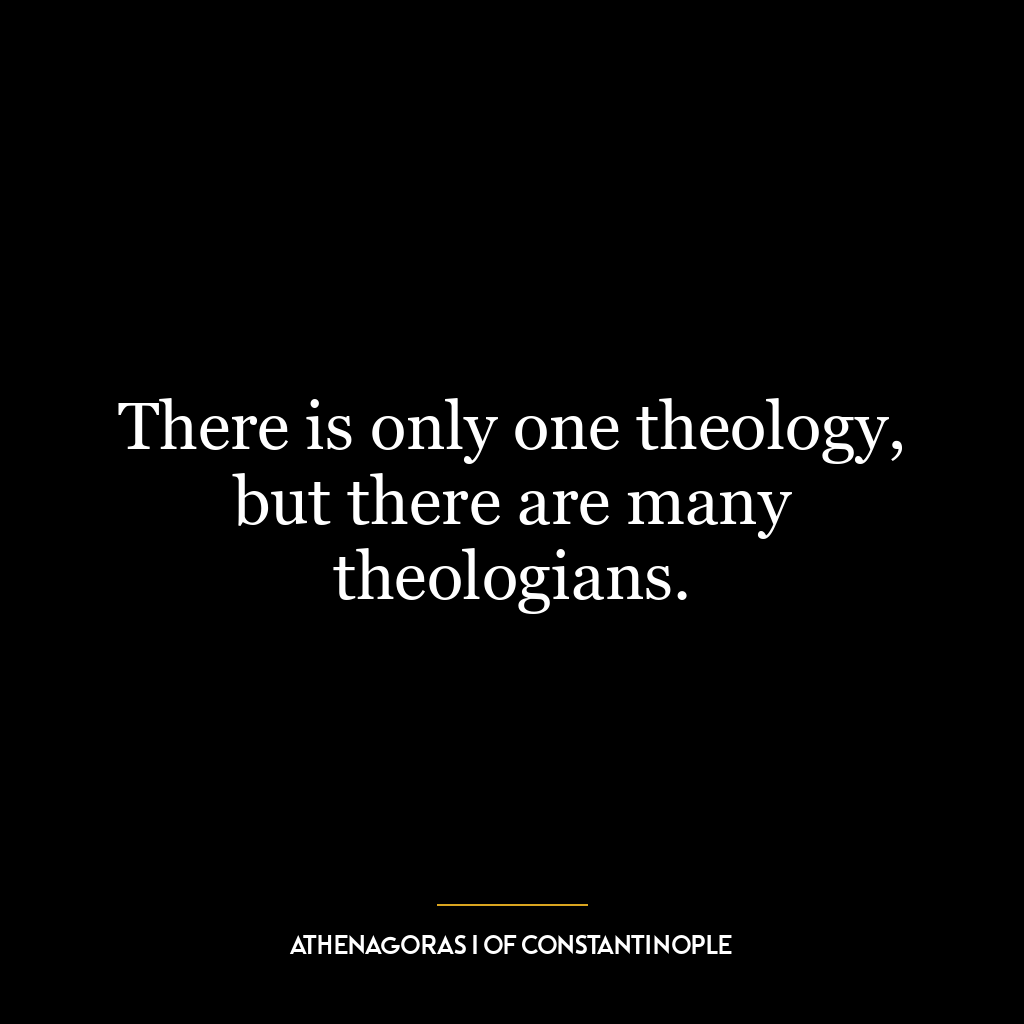Athenagoras I of Constantinople Quotes
- Clergyman
- Greece
- 190
Athenagoras I of Constantinople (c. 133–190) was a Christian apologist and theologian of the 2nd century. He is best known for his works Legatio pro Christianis (Embassy for the Christians) and De Resurrectione Mortuorum (On the Resurrection of the Dead). In Legatio pro Christianis, Athenagoras defe…Read More
Athenagoras I of Constantinople (c. 133–190) was a Christian apologist and theologian of the 2nd century. He is best known for his works Legatio pro Christianis (Embassy for the Christians) and De Resurrectione Mortuorum (On the Resurrection of the Dead). In Legatio pro Christianis, Athenagoras defended Christianity against pagan accusations of atheism and immorality. In De Resurrectione Mortuorum, he argued for the resurrection of the dead and the immortality of the soul. He was also a proponent of the unity of the Trinity and the divinity of Jesus Christ. Athenagoras is remembered as one of the most important Christian apologists of the early Church.Read Less
Athenagoras I of Constantinople (c. 133–190) was a Christian apologist and theologian of the 2nd century. He is best known for his works Legatio pro Christianis (Embassy for the Christians) and De Resurrectione Mortuorum (On the Resurrection of the Dead). In Legatio pro Christianis, Athenagoras defended Christianity against pagan accusations of atheism and immorality. In De Resurrectione Mortuorum, he argued for the resurrection of the dead and the immortality of the soul. He was also a proponent of the unity of the Trinity and the divinity of Jesus Christ. Athenagoras is remembered as one of the most important Christian apologists of the early Church.
Athenagoras I of Constantinople Career Highlights
Athenagoras I of Constantinople was the Ecumenical Patriarch of Constantinople from 1948 until his death in 1972. He was a prominent figure in the Eastern Orthodox Church and played a significant role in promoting Christian unity and interfaith dialogue.Born in 1886 in the Greek island of Marmara, Athenagoras began his career as a priest in the Greek Orthodox Church. He later served as the Metropolitan of Corfu and as the Archbishop of North and South America before being elected as the Ecumenical Patriarch of Constantinople in 1948.
Key Contributions by Athenagoras I of Constantinople
Athenagoras I is best known for his efforts to promote Christian unity and interfaith dialogue. He played a crucial role in the establishment of the World Council of Churches and was a strong advocate for closer relations between the Eastern Orthodox Church and other Christian denominations.During his tenure as Ecumenical Patriarch, Athenagoras also worked towards improving relations between the Eastern Orthodox Church and the Roman Catholic Church. He met with Pope Paul VI in 1964, marking the first meeting between a Pope and an Ecumenical Patriarch in over 500 years.
What Sets Athenagoras I of Constantinople Apart
Athenagoras I was a visionary leader who believed in the importance of unity and cooperation among different Christian denominations. He was also a strong advocate for peace and social justice, speaking out against war and injustice throughout his career.His efforts towards promoting Christian unity and interfaith dialogue have had a lasting impact on the Eastern Orthodox Church and the wider Christian community. He is remembered as a bridge-builder and a peacemaker, and his legacy continues to inspire leaders in the Church today.
Takeaways
Athenagoras I of Constantinople was a highly influential figure in the Eastern Orthodox Church and the wider Christian community. His dedication to promoting Christian unity and interfaith dialogue, as well as his strong stance on social justice, have left a lasting impact on the Church.His legacy serves as a reminder of the importance of unity and cooperation among different Christian denominations, and his efforts continue to inspire leaders to work towards a more peaceful and just world.








